Scroobius Pip is one half of UK indie hip hop duo dan le sac vs Scroobius Pip. Their songs tackle issues including suicide, domestic violence, and teen pregnancy with humour and intelligence lacking in mainstream hip hop. Earlier this year they released their second album, The Logic of Chance, and Scroobius Pip released his first graphic novel Poetry in (e)motion, a collection of adaptations of his songs.
The graphic novel began a few years ago when Pip chose around a dozen of his poems – “The ones that lent themselves to more interesting submissions” he says – and put out a call to artists on MySpace and Twitter, offering them the opportunity to illustrate one of them. The pieces ranged across his work coming from Angles, his first album with dan le sac, his live spoken word sets, and even a few that had never been performed.
He wasn’t sure where it would lead, or even if he’d get any responses, but thought he’d try anyway. “I wanted a way of putting out a book of poetry that would engage people who wouldn’t traditionally read poetry,” says Pip. “So I came up with the idea of presenting it as a graphic novel.”
(Art from When I Grow Up by Joe Cunningham.)
Pip had grown up reading comics, but had fallen away from them as he grew up. “I’ve never claimed to be any kind of expert,” says Pip. “But I did go through a period of collecting a lot of comics, as most kids probably did.”
“I was really into Ghost Rider and Spider-Man,” says Pip. “Then the Venom series came out and I got really into that and collected all the special edition covers.”
But it was only recently that Pip got back into reading comics. “Watchmen was what reignited my love of comics,” he says. “It got in Time Magazine’s top 100 novels of all time, and I went ‘Ah, I need to give this a look.’”
Since then he’s started reading an increasing number of comics. “I’ve become addicted to The Boys. It’s one of the best comic book series I’ve ever read.”
(Art from Reading My Dreams by Damian Claughton.)
Pip decided to release the graphic novel as an alternative to more traditional poetry collections. “[A] lot of people asked if I wanted to put out a book of poetry, and it kind of felt arrogant to do so just because I didn’t read a lot of poetry. I always preferred to watch it performed live.”
Pip also wanted to create something different from the usual lyrics/tablature collections or “appallingly written” histories most bands release as books, and felt that a graphic novel fit the bill.
Despite the personal meaning behind many of Pip’s work he was excited to see how other people would interpret his work, even going so far as to refuse to give any direction other than that the piece had to include all the lyrics in the correct order.
Once the adaptations began to arrive their quality impressed Pip immensely. “Over the first year I had over a hundred responses from people, they just started to flood in,” he says. “It was amazing to see reactions from people from all over the world.”
(Art Rat Race by Cow Free.)
Two of the adaptations in particular stick out in Pip’s mind. “There was one poem called Rat Race, and it was drawn [by artist Cow Free] really scribbly and scratchy and jotted,” says Pip. “[Cow Free] didn’t know that I’d written that poem on the back of till receipts when I was working in a record shop, but they looked exactly as if they were scribbled on the back of till receipts and it really excited me and hit home.”
(Art from 1000 Words by Anthony Gregori and Michael Spicer.)
Another adaptation that stunned Pip was 1000 Words by Anthony Grigori. “The standard of the drawings was absolutely amazing,” says Pip. “But when I showed them to a mate he noticed that the monument in one of the street scenes was actually a monument that was a ten minute walk from my home in Stanford Le Hope.” The American Grigori had never been to Pip’s hometown, but had used the internet to make the scene as accurate as possible. Commitment like that was, according to Pip, “overwhelming”.
Once he felt he had enough strong contributions Pip sent out feelers to various publishers. He had a few poetry publishers interested, but found a partner in Titan, the UK publishers of Watchmen and Kick Ass, amongst others. “The point of the book was to not just to attract the people who read poetry,” says Pip. “It would have felt a bit toiling to go through all this effort and then just put it out through a poetry publisher. So Titan have been perfect.”
Titan were enthusiastic about the project, but worried that the overall quality of the comics might not be up to standard. “Before the meeting they indicated we should get a few professionals on board, to commission a few pieces, just to bring the standard up to the level of what they normally put out,” says Pip. “It was great to go into the first meeting when I’d printed off ten examples and have them flick through and realize that we didn’t need to get any professionals in.”
(Unused art for Thou Shalt Always Kill by Yuzuru Namiki.)
Unfortunately, there were a few pieces that didn’t make it into the final book for a variety of reasons. “A Japanese guy did a really good drawing for Thou Shalt Always Kill,” says Pip. “But it was a picture of me wiping the lyrics off a mirror, and one of the restrictions of [the project] was that the poem had to be readable.”
The book has done well for Titan so far, having sold out of its initial print run and been reprinted. “We were prepared for it to not do very well,” says Pip. “Particularly as Titan hadn’t done something quite like this before.”
As for the future Pip has no concrete plans for more comics feeling that he doesn’t want to force out another collection after the first one came about so naturally. “I need to have another album or two worth of tracks, and loads more poetry written, for people to choose from and pull from,” he says. “I wouldn’t want to rush a second one out.” Instead there are plans for a tour of the USA and Canada, a solo album, a third album with dan le sac, and even a novel.
Despite this Pip has already thought about which songs from The Logic of Chance would make good comics. “There are two tracks, both quite dark, that storywise I’m fond of,” he says. “I think ‘Five Minutes’ and ‘Cowboi’ would lend themselves quite interestingly to adaptation, so those are both ones I’d look at in the future.”
==========
Matthew Murray can’t stop, won’t stop reading zines and minicomics, and reviewing them every day at 365 Zines a Year.


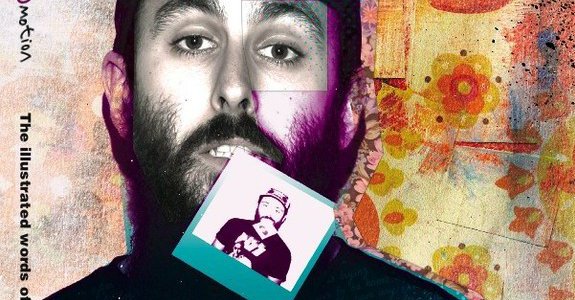
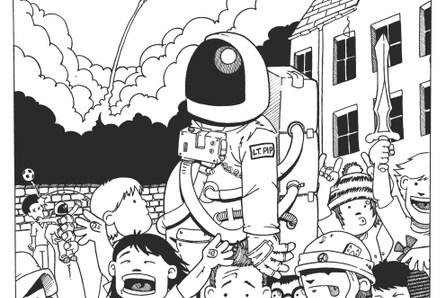
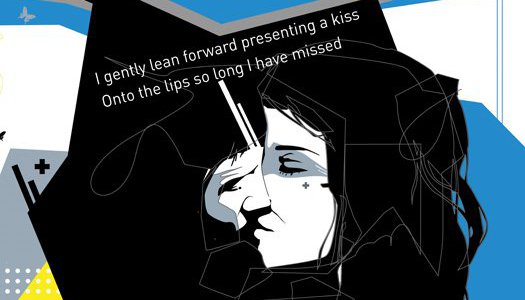
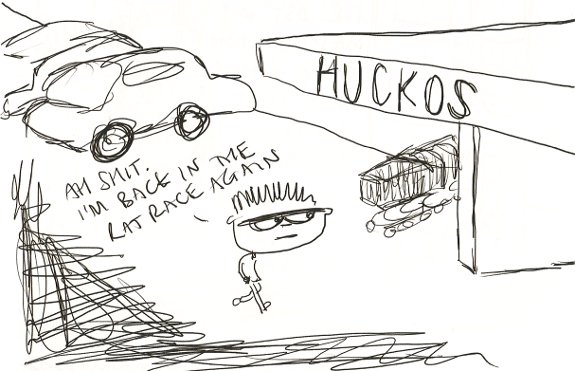
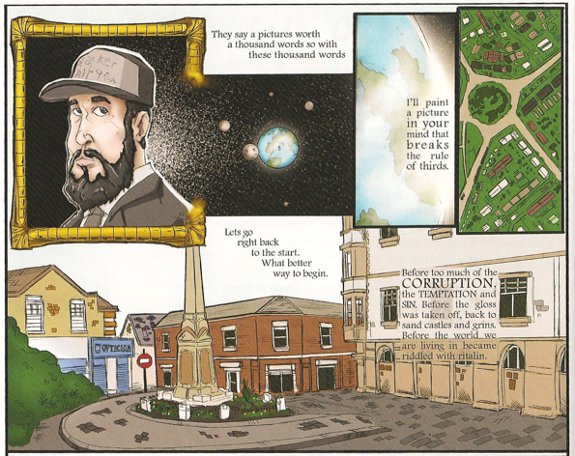
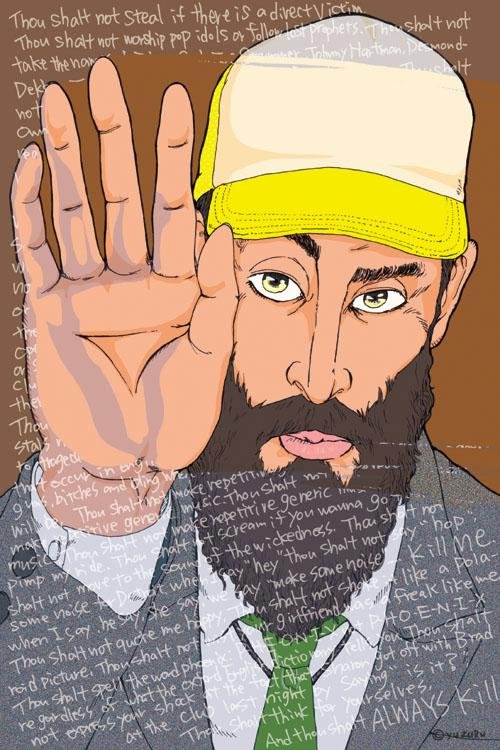
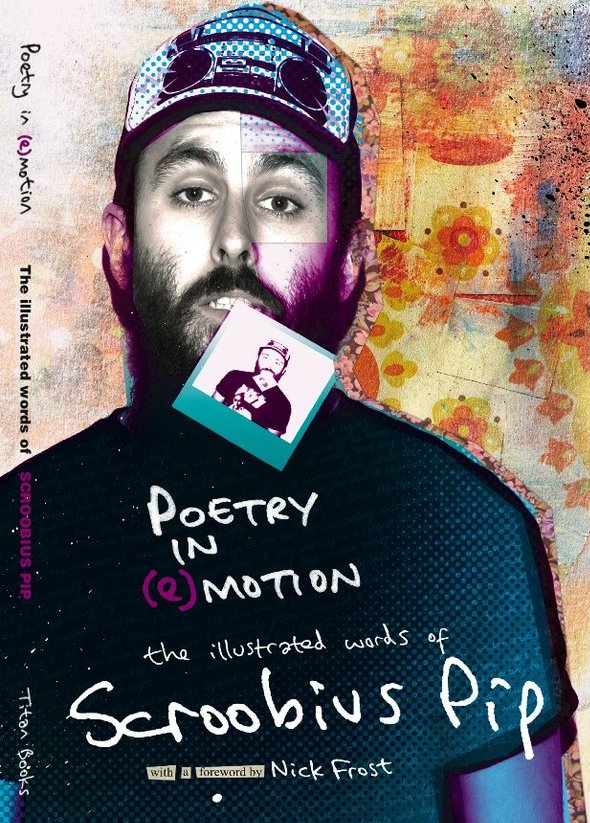


Damn. I’d buy it just for the forward by Nick Frost. The rest is gravy.
Looks pretty awful.